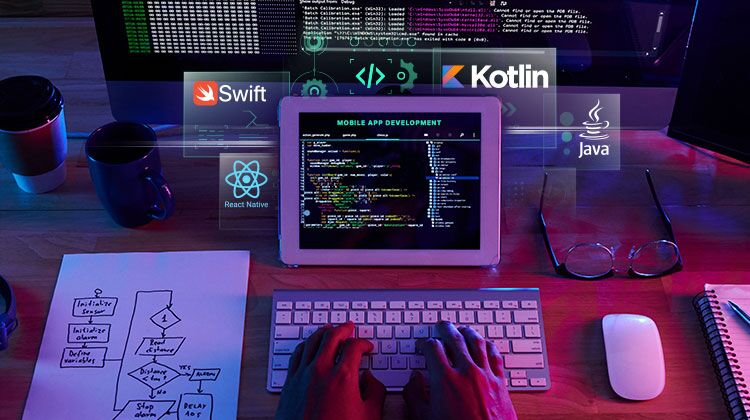If you’re someone with a concept aiming to bring it to life through a mobile application, you might be pondering how to elevate your app’s technological appeal and user engagement. How to secure its market success.
For all that, you need to consider the essential legal issues even at this early phase. Primarily, each phase of creating an app, starting from selecting the application development platform, carries specific legal challenges. In this blog, we’ll discuss legal issues to ponder during app development.
Seven Legal Issues to Consider During Mobile Application Development Process
App Store Agreements
Like agreements for application development platforms, an app’s compliance with legal requirements or stores is important. App stores serve as the main channels through which mobile apps reach consumers.
Each mobile application must adhere to the publication standards set forth by Google and Apple in their respective guidelines. These platforms retain the authority to modify the app’s legal terms or incorporate new conditions deemed necessary.
The agreements emphasize protecting personal data, including health-related information and details provided by minors, and addressing intellectual property concerns relevant to mobile applications.
Confidentiality Agreement
The mobile app development process involves various stages, from initial project discussions to post-production support.
Throughout these stages, multiple teams collaborate on tasks such as UI/UX design, wireframing, app development, Q&A testing, and app launch. However, the risk of sensitive information leaking to the public is a significant concern.
Implementing non-disclosure agreements (NDAs) with all stakeholders, including producers, developers, partners, and clients, is crucial to protecting confidential information. It ensures that only authorized personnel can access sensitive data, preventing unauthorized data sharing, design, and software prototypes.
Patent, Trademark, and Copyright Clauses
To safeguard their intellectual property rights, businesses must use clauses related to patents, trademarks, and copyrights. It is essential to ensure that the data, graphics, logos, or work provided to a top app development software company are not protected by intellectual property rights owned by others.
Simultaneously, businesses should also protect their intellectual property rights. By doing so, they can prevent unauthorized use of their proprietary assets and mitigate the risk of legal disputes.
Jurisdiction Or Hyper Local Legal Issues
Jurisdiction-specific laws and regulations vary across different regions, and businesses must be aware of them.
For example, activities such as online betting may be illegal in certain jurisdictions. Therefore, before launching an app, it is crucial to consider local laws, treaties, conventions, and jurisdiction-specific regulations. Adhering to these legal requirements helps businesses avoid legal complications and ensures compliance with local regulations.
End User License Agreement (EULA)
Similar to the requirements for privacy policies, app stores mandate that applications hosted on their platforms must come with an End-User License Agreement (EULA). This document represents a legal agreement between the app’s developer and its users.
The primary objective of a EULA is to ensure the app is not utilized in a manner that could compromise the developer’s rights to the IP incorporated into or associated with the application.
By enacting a EULA, teams at app development software can safeguard their intellectual property (IP) and investments, as this document doubles as a copyright license and a legal contract. This forms the essential legal foundation for all software usage at the user level.
A EULA is presented to users before they proceed with the software installation. A pop-up window displaying the agreement terms appears, requiring users to scroll through several pages of text before hitting the “I Agree” button to proceed with the installation.
Agreements with Mobile Device Manufacture & App Store
To maximize the reach of their apps, developers often sign agreements with mobile device manufacturers (MDFs) and app stores such as Android and iOS.
Clear and well-defined agreements with MDFs and app stores are essential for smooth app distribution and growth. These agreements outline the terms and conditions for app distribution, revenue sharing, and other relevant aspects. By establishing robust agreements, developers can minimize legal risks and ensure a seamless app distribution process.
Terms of Use and Privacy Policy
The terms of use and privacy policy govern the usage of mobile apps and the handling of user data. Users often entrust sensitive personal information to mobile apps, such as location data or access to their social media accounts.
Therefore, it is crucial for businesses to develop clear and comprehensive terms of use and privacy policies. These documents should outline how user data is collected, stored, and used, as well as the rights and responsibilities of both users and the app provider.
Involving experts of application development platforms in drafting these documents ensures compliance with relevant regulations and protects both users and businesses from legal liabilities.
Final Word
Creating a mobile app involves a sophisticated and varied process. Taking into account every facet from the outset, especially legal considerations, is crucial. This approach prevents encountering a scenario where the completed app fails to comply with the legal standards of a specific region or industry.
Always consider app development companies having exposure to wide application development platforms and their ability to comply with legal requirements. Choose the company that prioritizes legal compliance to deliver bespoke apps for businesses of all sizes.







